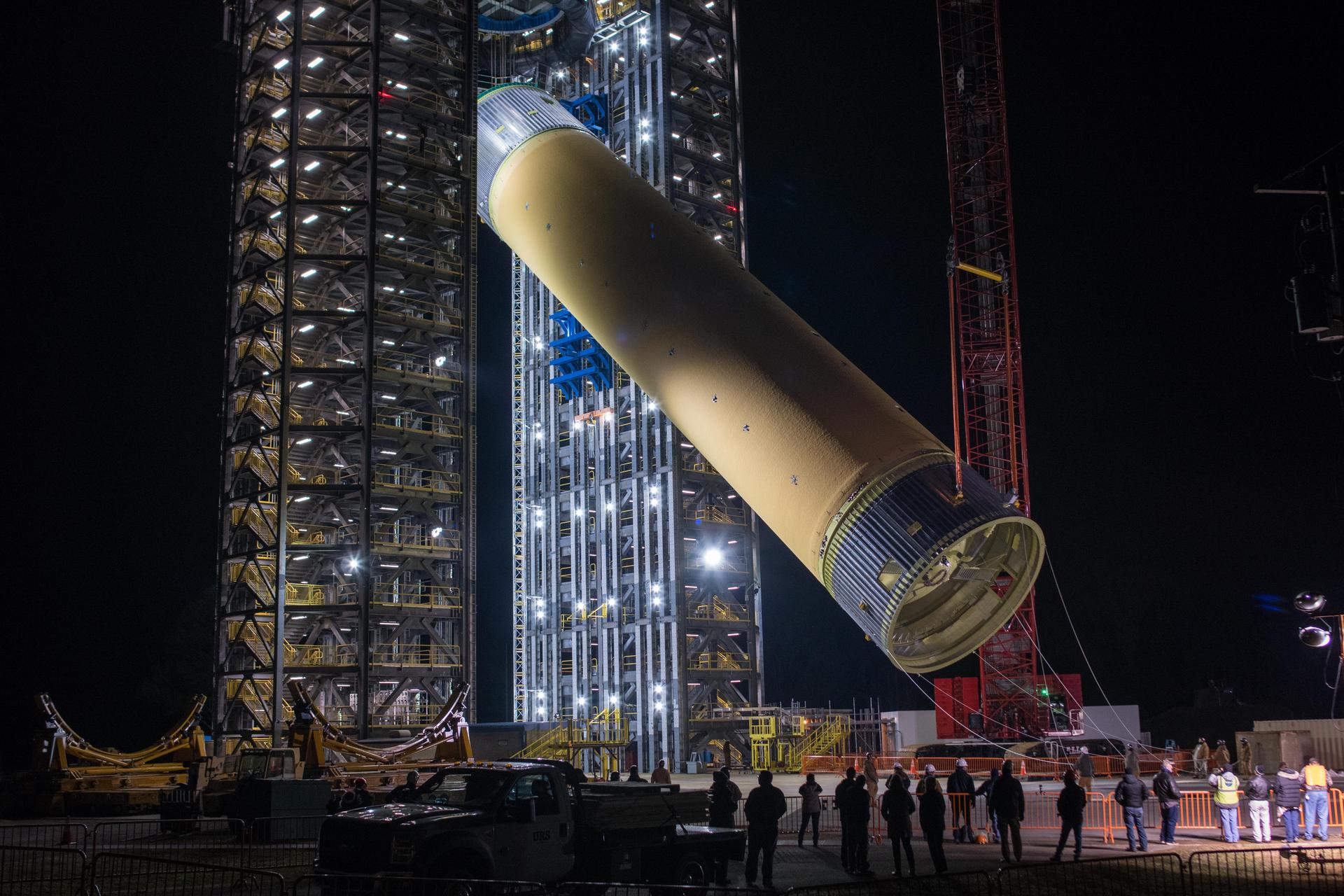Watch NASA's SLS Megarocket Get Ready for New US Moon Missions (Video)
NASA is hard at work getting its new, moon-bound rocket and spacecraft ready for Artemis 1, the next mission of the agency's program, which aims to eventually land humans on the lunar surface.
This new video from NASA's Marshall Space Flight Center goes piece by piece, top to tail, through the new Space Launch System (SLS). This is the powerful rocket expected to bring astronauts to the moon, and it may also send robotic spacecraft to faraway destinations in the solar system, such as Jupiter's moon Europa.
In the video, short clips show the progression of each piece of the system. Technicians in the lab put together parts such as the Orion crew spacecraft, the Launch Abort System and various adapters. Some hardware is shown being moved around the facilities of the Kennedy Space Center in Florida, such as a liquid oxygen tank that will help fuel one of the stages of SLS. Other pieces are shown in action, such as a test firing of the RS-25 engines that will boost the core stage of SLS off the ground.
Video: NASA's Artemis Moon Program Hardware Gears Up
Related: Here's NASA's Full Plate of Lunar Missions Before Moon 2024 Return

"NASA's powerful Space Launch System rocket and NASA's Orion spacecraft are making progress to the pad," the agency said in a description of the video on YouTube. "Over the course of their development, the rocket and spacecraft have moved from design and manufacturing to testing and assembly and integration. Some of the hardware has even been delivered to the launch pad at NASA's Kennedy Space Center."
Artemis 1 is scheduled to lift off in mid-2020, using the Space Launch System to boost the Orion spacecraft into space. Without a crew, Orion will loop around the moon and deploy several small satellites before making a reentry in Earth's atmosphere. The first crewed mission is expected no earlier than 2022, while the first moon landing has been scheduled for 2024.
- The Orion Spacecraft for NASA's 2020 Trip Around the Moon Is Ready to Go
- NASA's Mighty Moon Launcher Moves to Rocket Pad for Solo Testing
- NASA Aims to Accelerate SLS Megarocket for 2024 Moon Push
Follow Elizabeth Howell on Twitter @howellspace. Follow us on Twitter @Spacedotcom and on Facebook.
Get the Space.com Newsletter
Breaking space news, the latest updates on rocket launches, skywatching events and more!
Join our Space Forums to keep talking space on the latest missions, night sky and more! And if you have a news tip, correction or comment, let us know at: community@space.com.

Elizabeth Howell (she/her), Ph.D., was a staff writer in the spaceflight channel between 2022 and 2024 specializing in Canadian space news. She was contributing writer for Space.com for 10 years from 2012 to 2024. Elizabeth's reporting includes multiple exclusives with the White House, leading world coverage about a lost-and-found space tomato on the International Space Station, witnessing five human spaceflight launches on two continents, flying parabolic, working inside a spacesuit, and participating in a simulated Mars mission. Her latest book, "Why Am I Taller?" (ECW Press, 2022) is co-written with astronaut Dave Williams.









